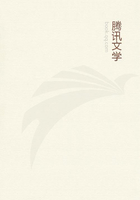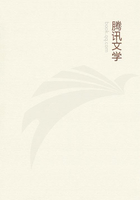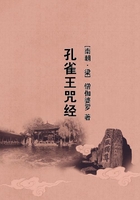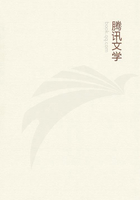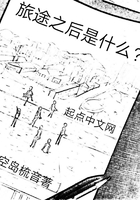How it chanced that a country conquered and enslaved by invaders, a country of which the soil had been portioned out among foreign adventurers and of which the laws were written in a foreign tongue, a country given over to that worst tyranny, the tyranny of caste over caste, should have become the seat of civil liberty, the object of the admiration and envy of surrounding states, is one of the most obscure problems in the philosophy of history. But the fact is certain. Within a century and a half after the Norman conquest, the Great Charter was conceded. Within two centuries after the Conquest, the first House of Commons met.
Froissart tells us, what indeed his whole narrative sufficiently proves, that of all the nations of the fourteenth century, the English were the least disposed to endure oppression. "C'est le plus perilleux peuple qui soit au monde, et plus outrageux et orgueilleux." The good canon probably did not perceive that all the prosperity and internal peace which this dangerous people enjoyed were the fruits of the spirit which he designates as proud and outrageous. He has, however, borne ample testimony to the effect, though he was not sagacious enough to trace it to its cause. "En le royaume d'Angleterre," says he, "toutes gens, laboureurs et marchands, ont appris de vivre en paix, et a mener leurs marchandises paisiblement, et les laboureurs labourer." In the fifteenth century, though England was convulsed by the struggle between the two branches of the royal family, the physical and moral condition of the people continued to improve.
Villenage almost wholly disappeared. The calamities of war were little felt, except by those who bore arms. The oppressions of the government were little felt, except by the aristocracy. The institutions of the country when compared with the institutions of the neighbouring kingdoms, seem to have been not undeserving of the praises of Fortescue. The government of Edward the Fourth, though we call it cruel and arbitrary, was humane and liberal when compared with that of Lewis the Eleventh, or that of Charles the Bold. Comines, who had lived amidst the wealthy cities of Flanders, and who had visited Florence and Venice, had never seen a people so well governed as the English. "Or selon mon advis," says he, "entre toutes les seigneuries du monde, dont j'ay connoissance, ou la chose publique est mieulx traitee, et ou regne moins de violence sur le peuple, et ou il n'y a nuls edifices abbatus ny demolis pour guerre, c'est Angleterre; et tombe le sort et le malheur sur ceulx qui font la guerre."
About the close of the fifteenth and the commencement of the sixteenth century, a great portion of the influence which the aristocracy had possessed passed to the crown. No English king has ever enjoyed such absolute power as Henry the Eighth. But while the royal prerogatives were acquiring strength at the expense of the nobility, two great revolutions took place, distined to be the parents of many revolutions, the invention of Printing, and the reformation of the Church.
The immediate effect of the Reformation in England was by no means favourable to political liberty. The authority which had been exercised by the Popes was transferred almost entire to the King. Two formidable powers which had often served to check each other were united in a single despot. If the system on which the founders of the Church of England acted could have been permanent, the Reformation would have been, in a political sense, the greatest curse that ever fell on our country. But that system carried within it the seeds of its own death. It was possible to transfer the name of Head of the Church from Clement to Henry; but it was impossible to transfer to the new establishment the veneration which the old establishment had inspired. Mankind had not broken one yoke in pieces only in order to put on another.
The supremacy of the Bishop of Rome had been for ages considered as a fundamental principle of Christianity. It had for it everything that could make a prejudice deep and strong, venerable antiquity, high authority, general consent. It had been taught in the first lessons of the nurse. It was taken for granted in all the exhortations of the priest. To remove it was to break innumerable associations, and to give a great and perilous shock to the principles. Yet this prejudice, strong as it was, could not stand in the great day of the deliverance of the human reason. And it was not to be expected that the public mind, just after freeing itself by an unexampled effort, from a bondage which it had endured for ages, would patiently submit to a tyranny which could plead no ancient title. Rome had at least prescription on its side. But Protestant intolerance, despotism in an upstart sect, infallibility claimed by guides who acknowledged that they had passed the greater part of their lives in error, restraints imposed on the liberty of private judgment at the pleasure of rulers who could vindicate their own proceedings only by asserting the liberty of private judgment, these things could not long be borne. Those who had pulled down the crucifix could not long continue to persecute for the surplice. It required no great sagacity to perceive the inconsistency and dishonesty of men who, dissenting from almost all Christendom, would suffer none to dissent from themselves, who demanded freedom of conscience, yet refused to grant it, who execrated persecution, yet persecuted, who urged reason against the authority of one opponent, and authority against the reasons of another. Bonner acted at least in accordance with his own principles. Cranmer could vindicate himself from the charge of being a heretic only by arguments which made him out to be a murderer.


